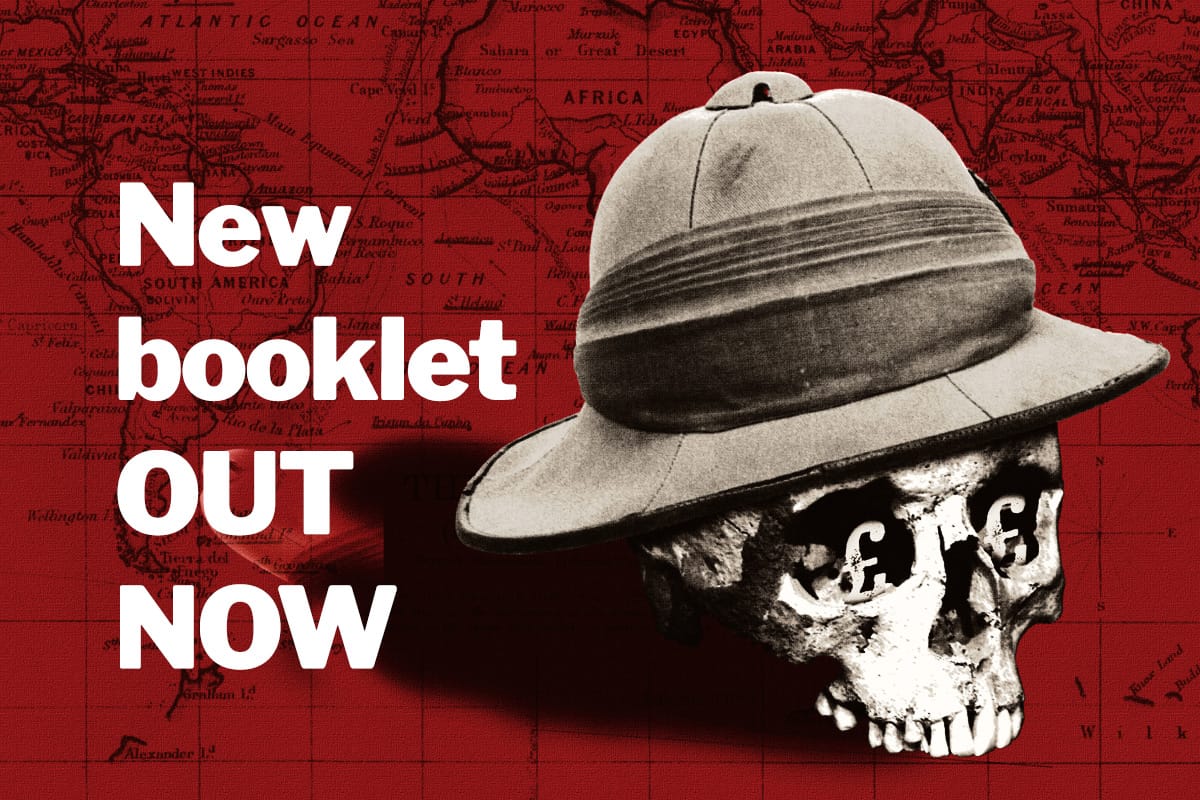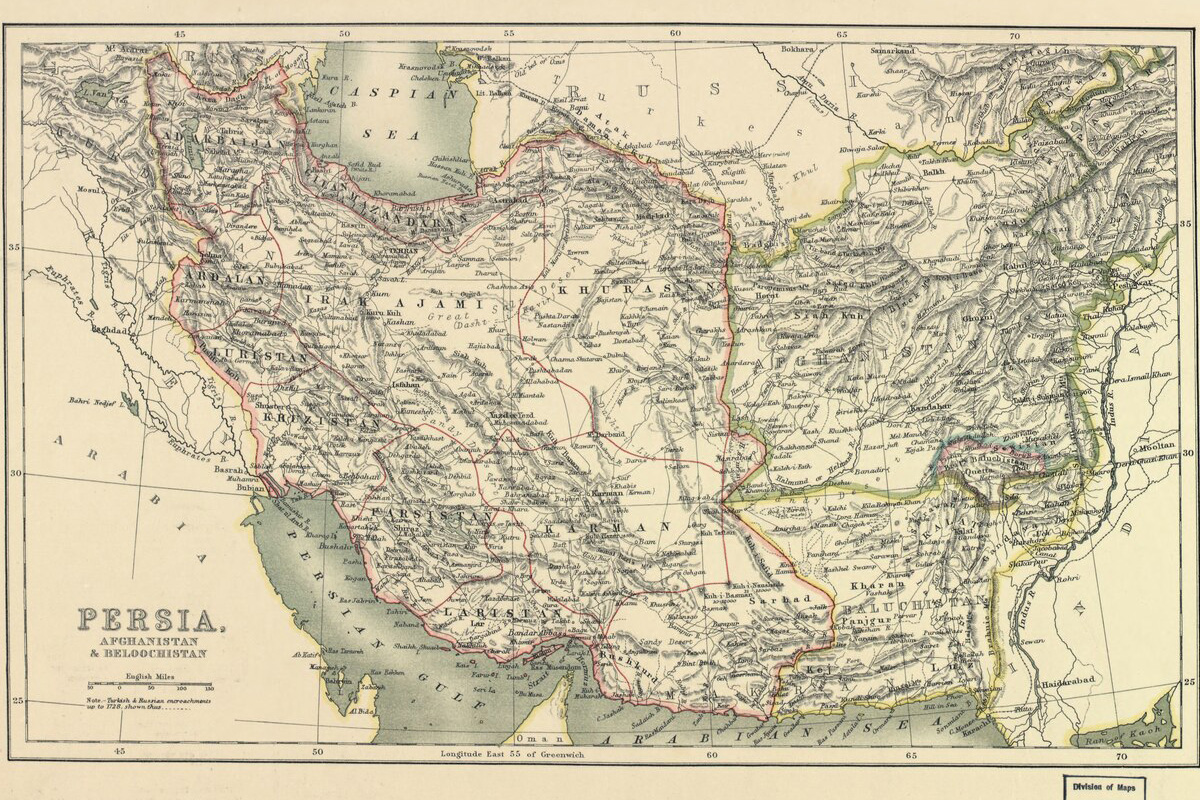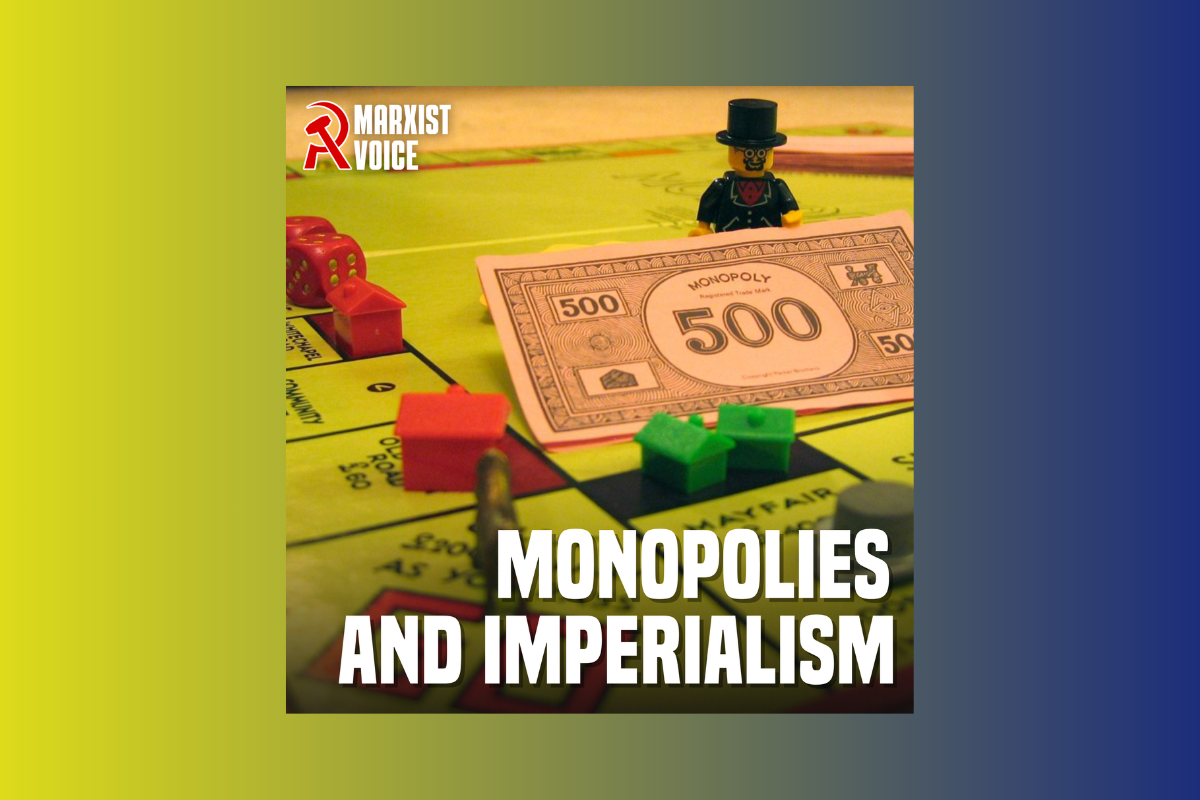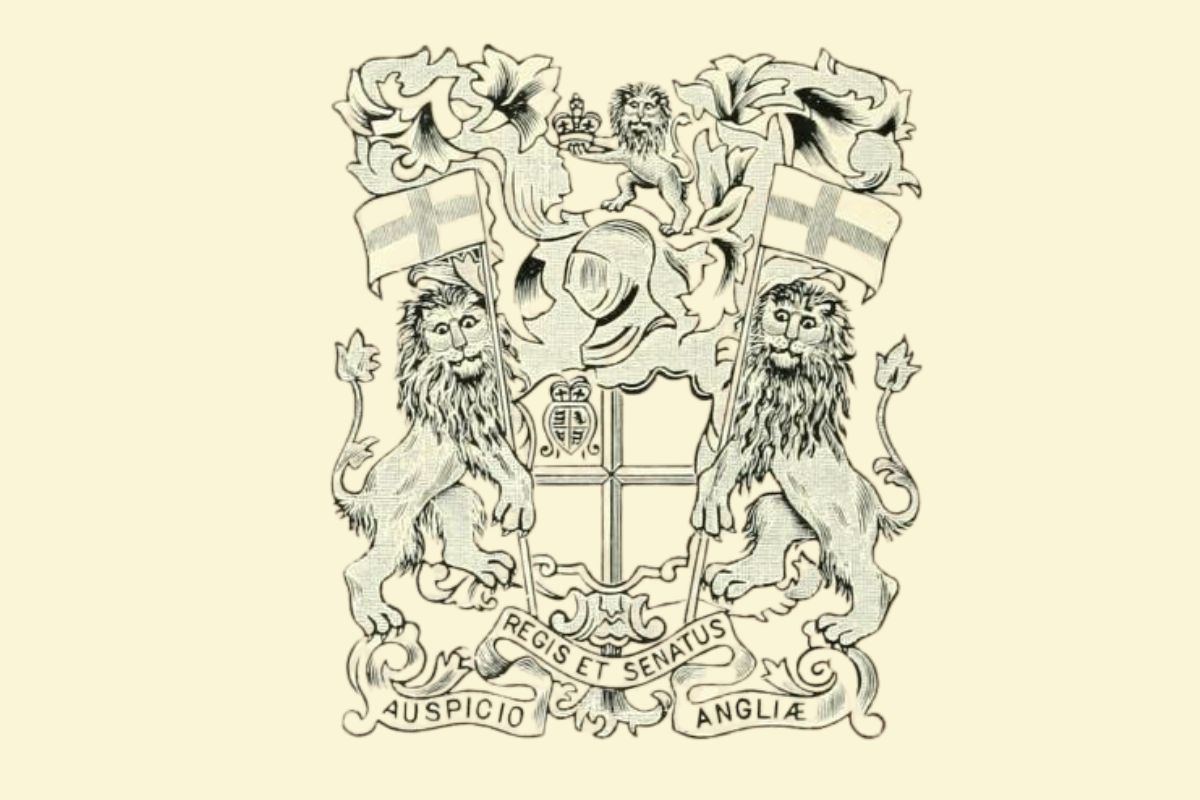British school students are taught about the British Empire as a benevolent thing: perhaps it may have misstepped here and there, but ultimately was a force for good in the world.
The Revolutionary Communist Party’s new booklet, The Crimes of British Imperialism, thoroughly dispels this myth, which is a handy tale for the British ruling class to hide the bloody history of their system.
Today, Britain’s past continues to make its mark in the present. ‘Sir’ Keir Starmer and King Charles found this out at the recent Commonwealth Summit, where former colonies demanded reparations numbering in the trillions for Britain’s role in the slave trade.
It is also taught that British imperialism died along with its empire. This is also a complete lie. Despite no longer being the world power that it once was, British imperialism continues to play a pernicious, meddling role on every continent.
From British imperialism’s full backing of Netanyahu’s genocide in Gaza, to the billions it sends to arm Ukraine, British imperialism is alive and well.
Spanning over 150 pages, this new booklet is aimed at arming communists in the fight against imperialism today.
Contents
- Introduction – Peter Kwasiborski
- A brief history of the East India Company – Mia Foley Doyle
- The partition of India: how Britain divided the subcontinent – Ravi Mistry
- Britain’s role in the Transatlantic Slave Trade – Nye Shaw
- First among robbers: the Scramble for Africa – Keelan Kellegher
- Mau Mau Uprising – how the British mutilated Kenya – Sarah Vedrovitch
- The Middle East and the Sykes-Picot Treaty: A Poisonous Legacy – Alan Woods
- A history of British imperialism in Iran – Stan Laight
- 1956 Suez Crisis: the death of an empire – Steve Jones
- The Malayan ‘Emergency’ – Nick Oung
- Indonesia: how British spies helped destroy the Communist Party – Oliver Brotherton
- Opium Wars: when Britain was the biggest drug dealer in history – Daniel Morley
- Palace plots and a ‘constitutional coup’: how the monarchy brought down Australia’s most progressive government – Oliver Brotherton
Order your copy at Wellred Books, Britain’s Marxist bookshop.
View this post on Instagram
Introduction
Peter Kwasiborski
And on the pedestal, these words appear:
My name is Ozymandias, King of Kings;
Look on my Works, ye Mighty, and despair!
Nothing beside remains. Round the decay
Of that colossal Wreck, boundless and bare
The lone and level sands stretch far away.
It can be hard to believe that these isles were once the metropolis of the largest empire in history. A decades old collapsing infrastructure, ancient damp-ridden housing, a health service deprived of resources, boarded up high streets. This broken state of the country spreads hunger, homelessness, the plagues of illness, both physical and mental, widespread addiction and crime.
Yet going beyond the here and now, the deep-running scars of the crimes committed in the name of the Crown can be found all over the world.
But to understand one first needs to know. That knowledge is however not readily accessible, as the constantly squeezed British schools are conveniently told not to prioritise these matters. If they are spoken about at all, it is done only in the form of the most sanitised lies. Dissent from the official version of history can not only cost you your grades, but may result in being put on a list of ‘extremists’, and if you’re a teacher – getting the sack.
This small pamphlet is an attempt at setting the matter straight and telling the truth. It is not possible to set out all these crimes in one single pamphlet. Capitalism, Lenin once said, is a story of horror without end. For as long as it is allowed to persist, the list of its atrocities will continue to grow.
Even if we wrote whole volumes of the collected crimes of British imperialism, would that lead us closer to understanding? Just as reading a Russian dictionary would not teach you to speak Russian, nor would owning a recipe book automatically make you a good cook, a long list of butcheries will in itself not bring us any closer to justice.
Imperialism
Imperialism is not simply a violent, expansionary governmental policy, it is in fact driven by the economic logic of capitalism. Understanding this is a prerequisite to any attempt at effective anti-imperialist struggle, after all we must recognise what it is that we’re fighting against.
Britain – this tiny island off the coast of Europe – came to control at its peak some 25% of the Earth’s landmass, with 20% of humanity under its dominion. This was no accident: Britain’s position as the birthplace of the industrial revolution allowed it to completely outpace the previous feudal colonial empires of Spain and Portugal, and propelled it into the position of a global hegemon.
The mechanisation and socialisation (as in, many workers working together with a division of labour) of industries that were previously the domain of petty artisans and home workshops unleashed a hitherto unknown productive potential. Using its abundant coal and advances in steam power Britain turned into the ‘workshop of the world’ – capable of importing vast quantities of raw goods and exporting finished products. It is estimated by 1850 Britain held close to a half of the world’s total productive capacity.
Textiles in particular became the backbone of its economy. Wool in vast quantities, and then cotton imported through the ports of Liverpool and Bristol, ended up in the ‘dark Satanic mills’ of Lancashire, Manchester, Derbyshire and Birmingham. The number of looms in Britain increased from some 2,400 at the beginning of the century, to a quarter of a million in 1857. Similar growth followed in coal, iron, machinery, transport, and agriculture.
The industry kept growing at a breakneck speed, with promises of more and more profit constantly dangling in front of the capitalists. Heaps of finished goods oversaturated the home market in no time. The only way to continue growth was to find markets of export. And so the basis for world domination emerged: the need to conquer the markets, open them up in the name of ‘free trade’, so that their raw materials could be extracted, and their markets made dependent upon finished goods from England.
Racist justifications
All kinds of justifications were conjured for this process. It was a ‘civilising mission’, the ‘white man’s burden’. Yet in the final analysis it was a blind and savage thirst for profit. Some who claim that it was driven first and foremost by these racist ideas and ‘Eurocentrism’ are putting the cart before the horse. It was the power of pound sterling that produced these racist justifications of imperialism – not the other way around.
Initially, as entire nations were annexed into the British market, their own industrial development had become stunted, since the colonies were simply there to provide their resources for manufacturing in the metropolis. This is why the early domestic industry of India was obliterated by the brutal force of competition. This is also why the Empire resolved to become the largest drug dealing cartel in history (as we will see in the article on the Opium Wars), as the only way of breaking the otherwise self-sufficient Chinese market.
The second industrial revolution would propel capitalism into its highest stage – that of modern imperialism as described by Lenin. This is the age of monopoly capital, of the inseparability of financial and industrial capital, of the export of not only commodities, but of capital itself, to exploit cheap labour found elsewhere. Investments began to trickle into railroads, ports, channels and coal stations to exploit the previously unknown riches of Africa. Virtually all developed capitalist countries scrambled for its diamonds, rubber, and gold.
This age also brought Britain its first serious competitors. From the 1880s onwards the newly unified Germany became an industrial giant on the continent. The United States similarly developed its domestic industry at a breathtaking pace. These two competitors had a significant advantage of starting their industrialisation from a much higher level. New factories and mills were built to the most modern standards and utilised cutting-edge technologies of the time, in contrast to the decades old industry in Britain.
Decline
Rather than spending enormous amounts of capital on trying to modernise, it was much more profitable to invest in developments abroad. The dispassionate forces of capitalism that propelled Britain into its century of glory, now began to turn against it, preparing its collapse at a later date.
Two World Wars descended upon the world, a direct result of new imperialist powers vying for space at a crowded table. Britain was elbowed out of its prime spot, with America emerging as the new master of the world, checked only by the newly emergent USSR and the Eastern Bloc, which gained its position by the mighty power of the planned economy.
Direct control of the Empire became untenable. Oppressed peoples of the world raised the call of independence from the weakened British and other colonisers. Britain nevertheless strove to leave its final mark all over the globe. The division of the Middle East, the creation of Israel in the Palestinian Mandate territory, the partition of India across sectarian religious lines, and the brutal oppression of independence movements in Kenya, Malaysia, and many others were intended to weaken the newly independent countries, and to ensure power was transferred into ‘favourable’ hands.
View this post on Instagram
New ‘free’ governments from day one were tied to the imperialist world order by a thousand threads of debt, so-called reparations, unequal trade agreements, and personal corruption. Dictators and juntas were propelled to power, as long as they were willing to be good overseers of Western interests. Democracy was worth only as much as the imperialist interests it was tied to – which was shown over and over again, in places like Indonesia, Iran, or even Australia.
In the meantime Britain itself slid further and further into decline. “First will be last and the last shall be first” says the Bible, and so the former metropolis was eclipsed by its first colony to turn independent. Whatever remained of British industry was sold out like the last family jewels over the course of the century, unable to compete in the new American-ruled world.
Banks in the City of London serve now as brokers and middlemen in the transfer of capital across the globe. Their insurance companies provide security for new imperialist projects. From the workshop of the world Britain turned into a second rate casino, with London playing the role of a croupier facilitating bets on various stocks & shares.
And so Britain limps on to this day. The wealth it extracted and created over the past centuries is now lost or crumbling away.
View this post on Instagram
Revolution
In what way could we make justice to all the victims of British imperialism of past and present? Wrestling all this wealth and putting it into the hands of the people would be a good start. Putting it into the service of humanity’s needs, not profit, would have the potential to uplift our species into a new age, where we’d be able to provide abundance on the global scale.
View this post on Instagram
This will require a conscious revolution against imperialism, and thus capitalism, and replacing it with a truly democratic state where workers will control and decide how to utilise this wealth. A successful revolution in Britain could be a mortal blow to the entire global system, which is already teetering on the brink of collapse, leading us from one barbaric war into another.
The Revolutionary Communist Party is preparing for such a revolution in Britain, and internationally as part of the Revolutionary Communist International. When the time comes we cannot let the chance slip through our fingers. All revolutionary movements of the past century show that without revolutionary leadership, which has to be built before a revolution, revolutions fail, and counter-revolutions succeed.
Such a party we aspire to build, and we invite any anti-imperialist to join us in this task. The time to organise is precisely now.






